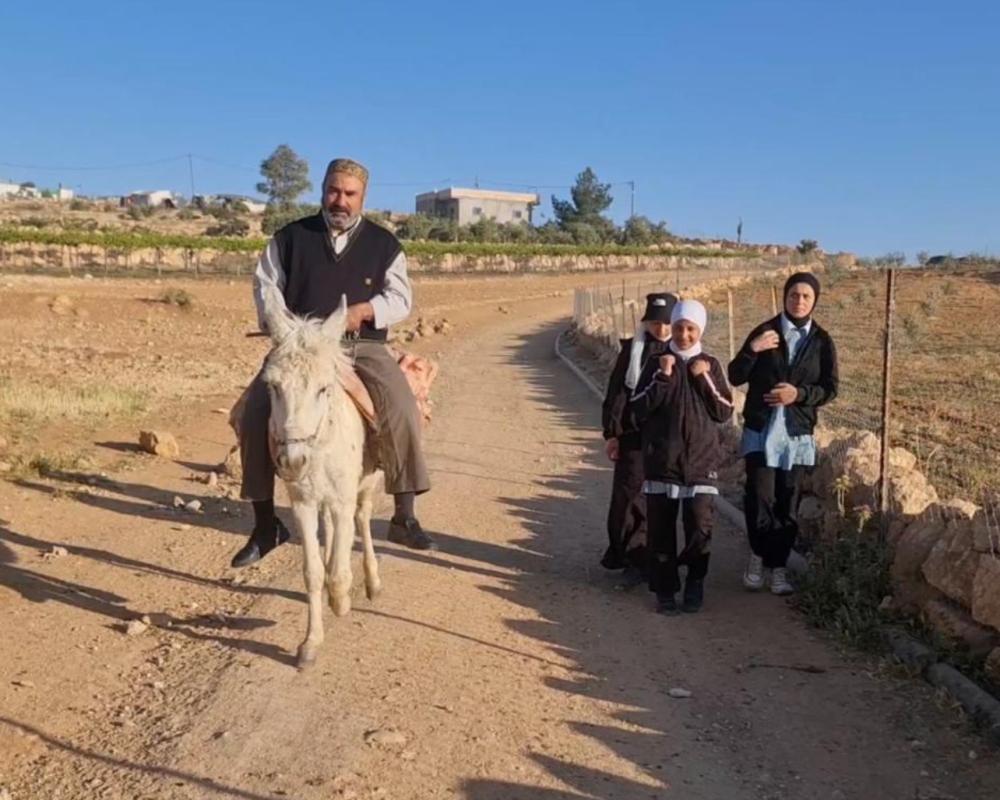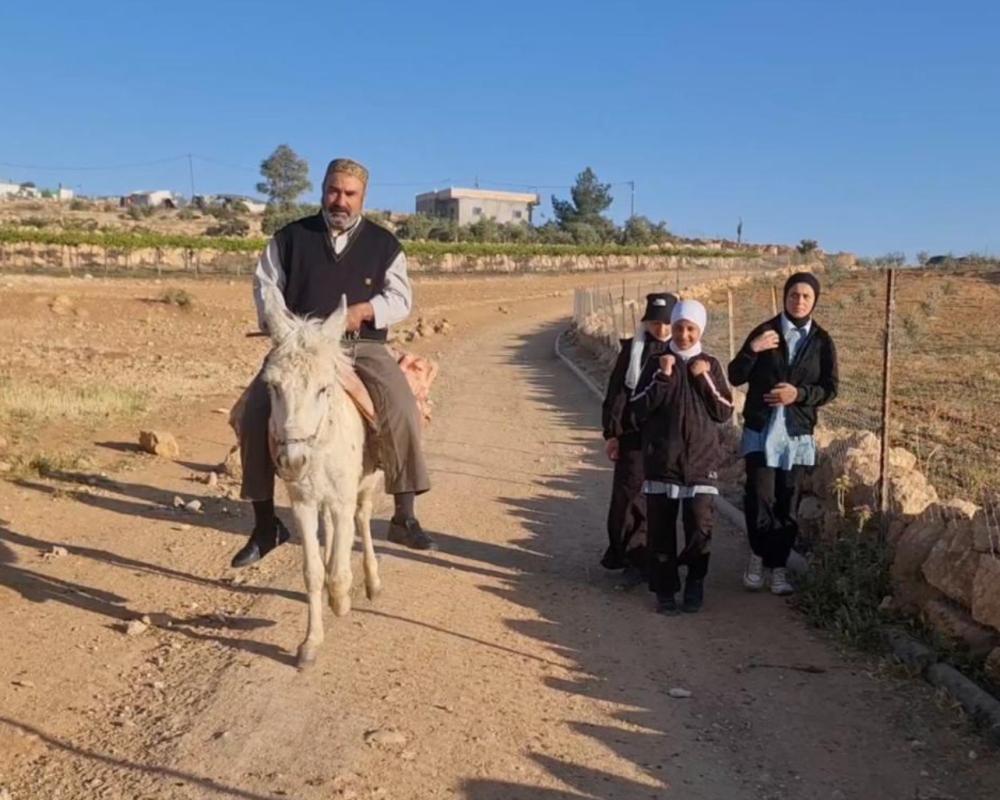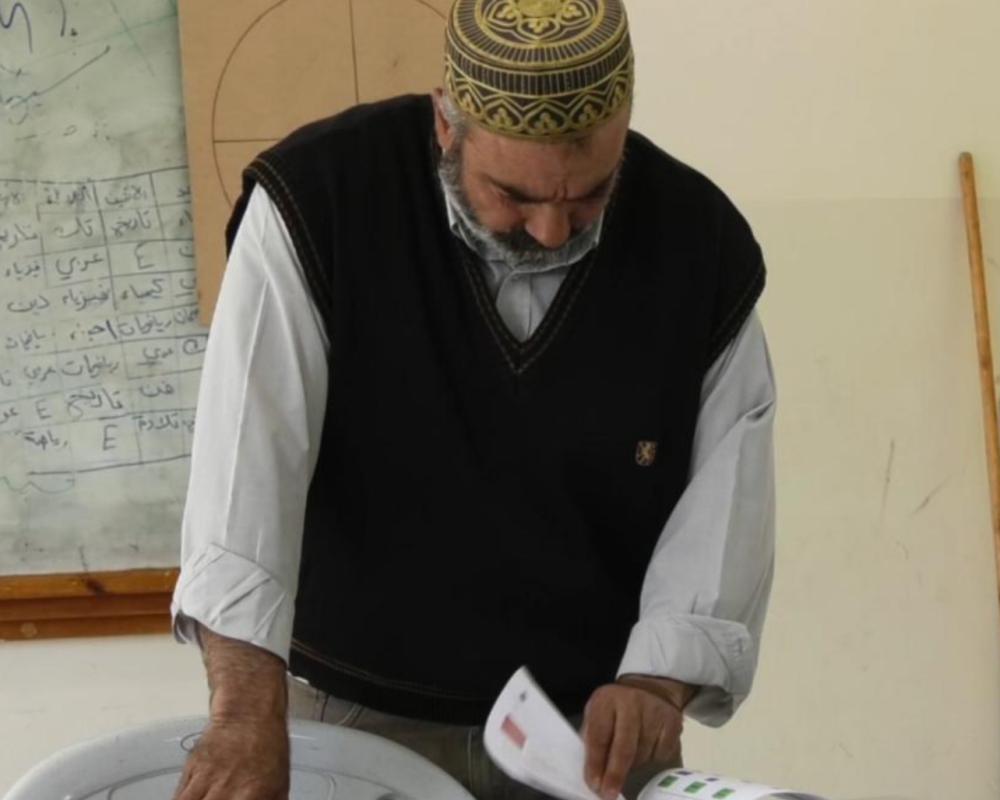
AL-JAWAYA South of Hebron/ West Bank / PNN - By Sari Jaradat & Monjed Jadou -
As the sun rises over the rugged hills of Masafer Yatta, south of Hebron, 60-year-old Palestinian schoolteacher Khalil Mohammad Al-Nawajaa mounts his donkey for the long, perilous journey to his classroom in Al-Tuwani Secondary Mixed School.
Like dozens of his students and neighbours in the remote villages of Masafer Yatta, Al-Nawajaa endures daily harassment by Israeli settlers and soldiers in his determination to uphold what he describes as a national, moral, and religious duty: the right to education.
Al-Nawajaa’s daily commute spans approximately four kilometres through terrain rife with military patrols and settler aggression. The veteran teacher recounts near-daily obstacles: military checkpoints, closed gates, and the confiscation of vehicle keys. At times, residents and students are forced to wait up to five hours before they are allowed to pass, he says.
Since the outbreak of the current war, Al-Nawajaa says Israeli settler violence and army restrictions have intensified dramatically. He believes these pressures are part of a concerted strategy to force Palestinians from their land, making way for settlement expansion and the annexation of Palestinian territory.
Even his donkey, a lifeline in the absence of reliable transportation, has not been spared—Israeli soldiers have reportedly seized it on multiple occasions near the entrance to the Carmel settlement south of Yatta.

“It’s not just the settlers. Soldiers, too, target us and the children, especially near checkpoints,” Al-Nawajaa says. “But the children continue walking long distances, under the scorching summer sun or the freezing rain and winds of winter. They walk through flooded paths filled with mud and debris—determined to reach their school.”
He adds that Israeli authorities often close the gate near the settlement of Carmel, which blocks the only access to Al-Tuwani and several surrounding communities. “They destroy water wells, restrict shepherds, and create conditions that make life unbearable—hoping we’ll leave,” he says. “But we won’t. This is our land. We were born here, raised here, and we’ll remain until the end of time.”
Despite these harsh realities, Al-Nawajaa insists the mission of education will continue. “Education is resistance,” he says. “We are the people of 'Iqra' (read)—and if we want to resist the occupation and preserve our presence, we must educate a generation that knows its rights and holds fast to this land.”

He calls on Arab nations, the international community, and civil societies to stand in solidarity with the Palestinian people, particularly in light of what he describes as Israel’s ongoing campaign of forced displacement, land confiscation, and settler violence. He also appealed for an end to what he called a “genocidal war” against Palestinians in both Gaza and the West Bank.
For Al-Nawajaa and his community, the struggle continues—not only for education but for dignity, existence, and the right to remain.
This story was produced as part of the "Qarib" program, implemented by the French media development agency CFI and funded by the French Agency for Development (AFD).
